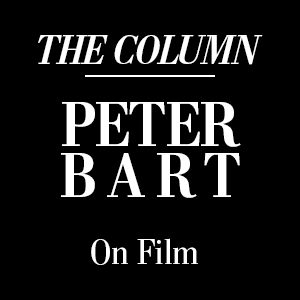Those of us who are hopeful for the comeback, or at least survival, of the theatrical motion picture are finding this Oscar season to be especially discomforting. If you’re lucky enough to identify a favorite, you also have to figure out how and where to see it.
The Academy thus is understandably edgy about voter “turnout”: Will members cast ballots for movies they may not have ever seen or heard about?
William Goldman, the legendary screenwriter, is often quoted for commenting that “no one knows anything” about making hit movies, but my favorite Goldmanism would be more relevant today. He wanted the data on Oscar voting to be made public, thus telling us “how voters really feel about their industry.”
While the Academy roundly denounced his 1995 proposal, I would argue that a breakdown this year would actually provide helpful insights. How are members dealing with challenging movies like Emilia Pérez or The Brutalist? For that matter, who and what is the Academy — an organization that has sharply reinvented itself — at this moment?
We all know the difficult data: The total box office of nominated movies was down by 37% this year, even though release schedules were dominated by sequels and remakes. Further, some of the most intriguing films were virtually invisible in terms of publicity, plus hard to find theatrically.
RELATED: Oscars 2025: Everything We Know So Far About Nominations, Ceremony, Date & Host
A prime example: September 5 will be released digitally just this weekend (Saturday) having had a modest theatrical release from Paramount and Republic Pictures (remember them?).
I’m glad September 5 is finally out there because it’s a riveting movie that defies simple categories. On one level it’s a thriller about the 1972 Munich Olympics hostage crisis; on another it’s a gripping portrayal of individuals caught in a life crisis for which they are ill-suited and ill-prepared.
September 5 has no superstars in its cast; its director, Tim Fehlbaum, is Swiss. In assessing the movie, critics generally fell into what Pauline Kael described as the “faint praise” syndrome – supporting a movie in a way that nonetheless discourages ticket buyers. In the New York Times, Manohla Dargis praised September 5 but said it had “the quality of a journalism procedural.”
Kael, to be sure, represented a band of “advocacy” critics who not only praised movies but campaigned for their success, as with Bonnie and Clyde. Today, films like My Old Ass or A Real Pain or September 5 would clearly benefit from the support of critic-advocates.
Goldman now and then dabbled in reviews, his opinions vigorously pro or con. He attacked formula movies and blatant superstar vehicles. His best-known screenplays were The Princess Bride and Butch Cassidy and the Sundance Kid.
In proposing the release of voting numbers, Goldman ran into quick opposition from Arthur Hiller, then president of the Academy. “Releasing vote tallies serves no purpose except as grist for gossip,” he argued. “Frankly, it’s unworthy of us.”
Goldman replied that he was advising the Academy, not the Vatican.

